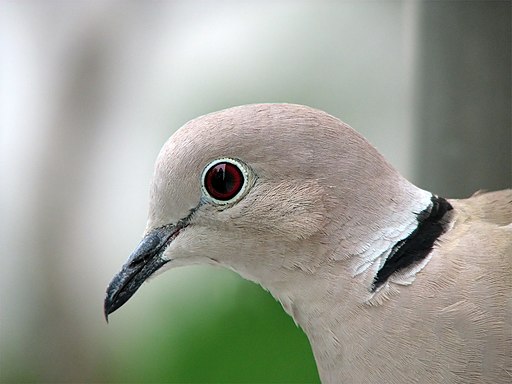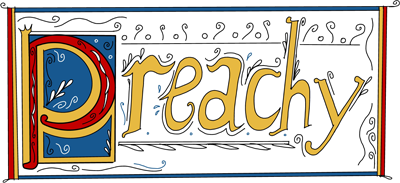
The day I became a dove
 The day I became a dove was a Sunday like many Sundays in my boyhood. Early that September morning, Mom and Dad packed my sister and me into the Chevy for the drive up from Grand Prairie to my grandparents’ place west of Sherman. We always took Texas State Highway 377, a mostly two-lane strip of asphalt that wound north past Aubrey, Pilot Point, Tioga, and on to Collinsville. There, at the one-eyed flashing light next to Stephenson’s store, we turned east toward Grandpa and Grandma’s place two miles outside town.
The day I became a dove was a Sunday like many Sundays in my boyhood. Early that September morning, Mom and Dad packed my sister and me into the Chevy for the drive up from Grand Prairie to my grandparents’ place west of Sherman. We always took Texas State Highway 377, a mostly two-lane strip of asphalt that wound north past Aubrey, Pilot Point, Tioga, and on to Collinsville. There, at the one-eyed flashing light next to Stephenson’s store, we turned east toward Grandpa and Grandma’s place two miles outside town.
As Dad pulled into the gravel driveway between the house and the barn, the dogs, Lassie and Queen, bounded out to greet us. My sister and I stopped to pet them as Grandpa ambled toward us, trailing pipe smoke and clad in his usual faded blue overalls. Grandma followed, stooping slightly at the waist, her thin white hair pulled back in a bun, wiping her weathered hands on her apron.
There must have been the usual greetings and hugs and small talk, none of which I remember clearly now. What I do remember came later that morning. Grandpa, Dad, and I headed out past the barn and into the pasture for some hunting. Grandpa and Dad had their shotguns broken open over their arms as we walked through the grassy field, stepping over or around the cow patties scattered along the way. The two men were talking about grown-up things that I pretended to understand.
How old I was, I’m not sure. Maybe eleven, maybe twelve. At any rate, too young to handle a firearm, or so my dad said, though some of my schoolmates already had their own BB guns and one or two even had .22’s. “Why can’t I have a BB gun?” I’d ask my dad. “When you’re old enough, we’ll talk about it,” was his frustrating reply.
When I’d been a bit younger, I’d carried an imitation Winchester, a cap rifle of metal and plastic with both trigger action and lever action (for rapid firing). I’d aim it this way and that way, blowing away the occasional bad guy foolish enough to step out from behind this live oak or that pecan tree. But I’d reached an age where a pretend gun wasn’t enough. I watched admiringly as the men handled their beautiful weapons – polished wood stocks, burnished gun metal. Aim, fire, stop a bird in mid-flight and send it plummeting to earth. I wanted to have that skill. I wanted to be those men.
It was getting toward mid-morning. The late summer sun had bleached the color from the prairie grass and left it the shimmering yellow-white of sunlight itself. Now and then a cooing sounded in the distance.
Before we’d left the house Grandpa had given me an empty Rainbo bread sack to carry. It was a kind of compensation, a way to make me feel a part of something I wasn’t yet old enough to participate in. My job was to pick up whatever birds the men shot, bag them, and carry them back to the house when we were done. Already in my short life I’d “bagged” several quail, plump shapes with speckled brown feathers. (I’d learned to whistle their call: bob-bob-white, bob-bob-white.) Once I’d even bagged a bullfrog, shot dead at the edge of the stock tank by one of my uncles.
Grandpa wore his beat-up straw hat and had his ever-present briar pipe clamped between his gums. He’d had all his teeth pulled many years before, and unlike Grandma, he refused to wear dentures.
We were nearing a stand of pecan and oak trees down by the stock tank. Up the slope of the hill, some Herefords were grazing along the fence line.
Dad spoke and that stopped us in our tracks. I saw him raise his shotgun, aim.
The blast shattered the stillness, and up ahead, a brown-gray blur dropped through the light into the shade under the trees.
The men hung back. This was my time. I hurried over with my bread sack.
The bird, a dove, was lying on its right side. I remember the licks of white along its wing.
But as I started to bend down to pick it up, I saw it was looking up at me.
Its small body was trembling.
I couldn’t move.
I felt it looking into me, like pain digging deep into my soul. Before that instant, I don’t think I knew I had a soul. There was pain and it wasn’t my pain but somehow it was my pain.
“Looks like you winged it, Joe,” Grandpa said, from somewhere behind me.
“Yeah,” I heard Dad say. “Put it out of its misery, David.” I sensed them behind me, watching.
But still I couldn’t move.
“Step on its head, son,” Grandpa said.
I watched the dove, and it watched me, and I could feel the grown-ups behind me, waiting for me to do what needed to be done.
I’d killed many creatures in my handful of years. I’d swatted flies, squashed mosquitoes. Felt the crunch of cockroach under my shoe. But now I couldn’t move.
And still the bird watched me, trembling.
Then I sensed Grandpa move past me. I looked away. The next thing I remember, he was handing me the limp body. Its weight in my hand. Grandpa didn’t say anything. Dad didn’t, either. I put the body in the bread sack. As I was supposed to.
But something inside me had shifted.
We must have returned to the house, had lunch, swapped stories, driven back to Grand Prairie. But I don’t remember any of that. And Dad and Grandpa never spoke again of what to them must have been my moment of weakness, at least not within earshot of me.
From that day forward, hunting no longer drew me as it once had. Some of my friends got rifles for their birthday or Christmas; my parents bought me other gifts. I didn’t mind: I just wasn’t interested any more.
Through the years, that moment of shared fear and confusion and pain, of shared being, has stayed with me, quietly testifying that our illusion of separateness is just that, illusion.
Don’t get me wrong. I’ve killed other living creatures since then – cockroaches, mosquitoes, fire ants, the occasional rat – and felt little or no guilt doing so. As a meat-eater, I’ve participated — at arm’s length, certainly, but participated nonetheless — in the deaths of other animals, the killing done by other people. If it were solely up to me, I doubt I could kill those animals just to satisfy my own taste for barbecue or bacon. I know this, and I order barbecue brisket and bacon and smoked sausage all the same.
I can’t pretend to sort out this bizarre world in which one being lives by killing other beings. It’s not the world I would create. But it’s the world I was born into.
And yet.
And yet that September morning comes rushing back to me now whenever I see a dove out in the front yard under the feeder. The blue jays and cardinals and Carolina chickadees have already stopped by for breakfast, each taking one or two black-oil sunflower seeds from the feeder, spilling some as they go. Only then do one or two doves arrive, those same flashes of white along the edges of their wings, and root around for spilled seeds.
And as I sit in my lawn chair watching them, I wonder: Can they sense the presence of a distant relative? Do they know I’m one of them?
David R. Brockman, Ph.D., a religious studies scholar and Christian theologian, is a nonresident scholar in the Religion and Public Policy Program at Rice University’s Baker Institute. He also teaches at Brite Divinity School and Texas Christian University. His articles have appeared in Texas Observer, Religion Dispatches, Scalawag, and other publications. He is the author of No Longer the Same: Religious Others and the Liberation of Christian Theology (2011) and Dialectical Democracy through Christian Thought: Individualism, Relationalism, and American Politics (2013).
